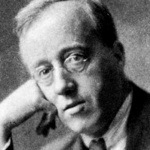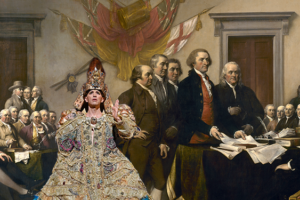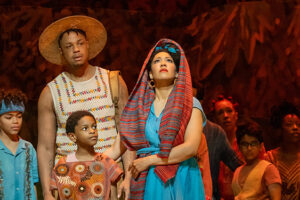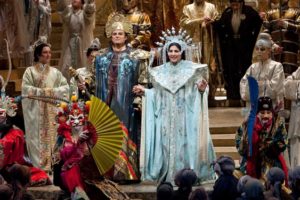

The Little Opera Theatre of New York, one of the city’s savvier little companies (responsible for the excellent run of Mozart’s Mitridate last spring), is presenting a double-bill of brief Holst chamber operas under the heading “Travelers” at 59 East 59th, a venue that permits us to be up close to big unamplified voices. The program will give any voice lover great pleasure.
The Wandering Scholar (1930), a work of Holst’s age, tells the Chaucerian tale of a medieval peasant, his wayward wife, a lecherous priest and a hungry student, with some of the air and flavor of L’Heure Espagnol. (Ravel had replaced Wagner as Holst’s idol.) Savitri, the evening’s principal offering, composed in 1908, is based on an Indian legend Holst claimed to have translated from Sanskrit, about a wife who manages to talk Death himself out of taking her husband. The passionate tones of this tormented lady make a goodly contrast to the light, flirtatious manner of the peasant’s wandering wife, and there is an attractive a cappella choral background to the serious but not-quite-tragic Indian tale.
The program is happily cast, the voices strong, the diction clear and emphatic, the acting polished. In The Wandering Scholar, Sharon Apostolou (who has sung Ravel’s avatar, the Spanish wife Concepcion) sings flirtatious Alison with an elegant soprano juggling husband Ron Loyd (a sturdy and amorous baritone, only lacking the proper whistle to summon his dog) against Jeffrey Tucker’s hilariously venal priest and Benjamin Robinson’s conniving scholar.
Mezzo soprano Heather Johnson gives nearly Wagnerian weight and intensity to Savitri’s anguish, though she’s unsure of a top note or two. Rufus Müller, as her adored husband, Satyav?n, had, sadly, an even sketchier top. Michael Scarcelle sang Death with an even tone and the proper chilly dignity. (In the version of the tale told me by a Hindu witch, the wife asks Death to be her guru, a tremendous honor—but Holst seems to have felt Western audiences would not comprehend the irony of this point.)
Richard Cordova conducted the chamber ensemble tightly and elegantly. The arrangement of Savitri was somewhat reduced, that of Scholar devised, after the composer’s death, by his daughter, Imogen, and his disciple, the young Benjamin Britten, to be roughly the same as the ensemble for Albert Herring and The Rape of Lucretia.
The music does not remind one of Lucretia, which has a more dynamic, immediate drama, but the melodies are boldly individual, Holst and no one else, following none of the fashionable schools. Savitri is grounded in its heroine’s agitated lamentations and shy stratagems, and exploits the possibilities with more operatic character.























Comments